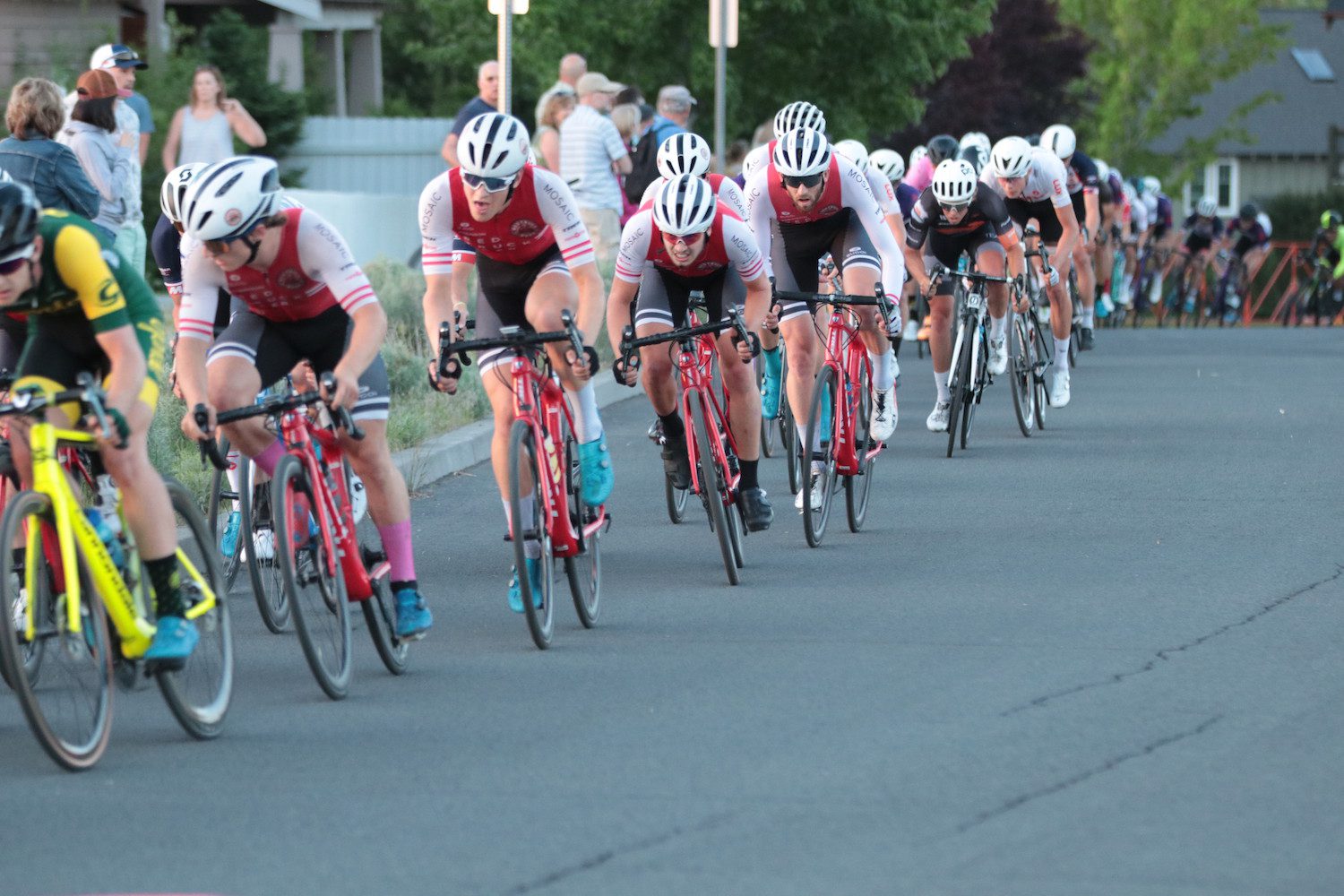Ask Oli: Gravel dust-up at the Cascade Cycling Classic
Canadians battle through un-paved sections for stage wins at reanimated Oregon road stage race

After a brief hiatus, the Cascade Cycling Classic is back. Arguably, ‘America’s longest running stage race’ is now better than ever!
The five-day, five-stage race has dropped the ITT, gained an extra circuit race, changed the crit venue and added some gravel to a couple of the stages. Cascade’s organizers understand that cycling is changing, especially in North America, and if they want this race to grow to the success it once was, it cannot be in the race’s original fashion.
Gravel is in. That’s a fact. And, in my humble opinion, time trials are out…
The race’s first stage is now an exciting, short and spicy rolling 100 km circuit race with ~5 km of gravel on each of the four laps. This, compared to the 180 km relatively flat first stage which ended with a 20+ km climb when I last raced the CCC in 2016, was a welcomed change.
Instead of rolling around half bored for 3.5 hours before having my legs torn off for 45 minutes up a hill, I got to have my legs torn off for just over two hours, and was never bored! It was unlike any road race I’ve ever been in before. What a cool way to start!
Canadian Alec Cowan of Floyd’s Pro Cycling won, and Trek Red Truck’s junior hitter, Riley Pickrell came in at an impressive seventh.
The second stage was 160 km with 2600 m of climbing. After a 20km climb, we would descend into a rain storm, before riding through a small town on a rough, dirty little road, and then climbing again. The descent that followed was super technical. With only a single lane and cattle guards littered around blind corners, the race strung out on this section. I rode on the Floyd’s train safely at the front of the peloton, and honestly, this was the most fun I’ve ever had on a race decent. I may have yelled “Wheeeeooooo” a couple times.

Fortunately for me, I got dropped on a KOM climb with around 70 km to go, and got to enjoy the stunning scenery of the Painted Hills and John Day River Canyon regions of Oregon as I rode very slowly.
I rolled in dead-last, still within the time-cut: a result I’m genuinely proud of (lanterne rouge anyone?)!
At the other end of the race, Canada’s Jordan Cheyne of Elevate KHS took the win and the leader’s jersey.
Stage two felt, to me, like a properly epic bike ride.
The third stage was perhaps the most exciting. The much anticipated 3 mile gravel sector that we would hit twice was brutal. After going the wrong way on a random dirt road, we eventually hit the proper sector.
The gravel was deep with larger rocks than expected, and the race exploded there both times. Skill had a bit to do with your ability to get through it, but it was genuinely a section where power trumped all and those who could throw down the most watts rode away. The number of flats exceeded the number of spare wheels in follow cars, and chaos ensued. It was sweet.
Some say that the gravel on stage three was too much. I rode 28mm Continental All Season clinchers (like always) and I didn’t flat. Just saying…
I found myself in the grupetto again on this stage. No complaints though; the view of Mt. Bachelor on the 10 km climb to the finish was gorgeous, and I had some solid company.
Moving from the flat four corner crit of years past, to this year’s seven corner crit for stage four was awesome. The course was narrow, fast, technical, and had a little climb. Carnage ensued, and I went down, but not without having fun first. And usually I don’t like crits.
A massive crowd lined the course too, making this one of the best attended criteriums I’ve ever been to. The energy and community involvement was electric.

A big shout out goes to my lovely friend, Anna Talman of BC’s InstaFund La Prima women’s cycling team, who rode to the most impressive solo victory I’ve ever seen!
The final stage was a brutal 2 hour circuit race that was essentially hill reps. I didn’t start after my crash, but I know it was hard. The overall was decided on this stage, and I happily sat in the beautiful Oregon sun to spectate.
It’s great to see racing in North America evolve. Not only does Cascade live on, but it may inspire other stage races to get a little more creative too! While the field of 87 in the pro men’s race was small compared to the 160+ of years passed, I’m confident the field size will increase for 2020!
Oliver Evans is a 20-year-old cyclist from Winnipeg, currently living in Victoria. In 2019, he is racing on the road with Trek Red Truck Racing.
